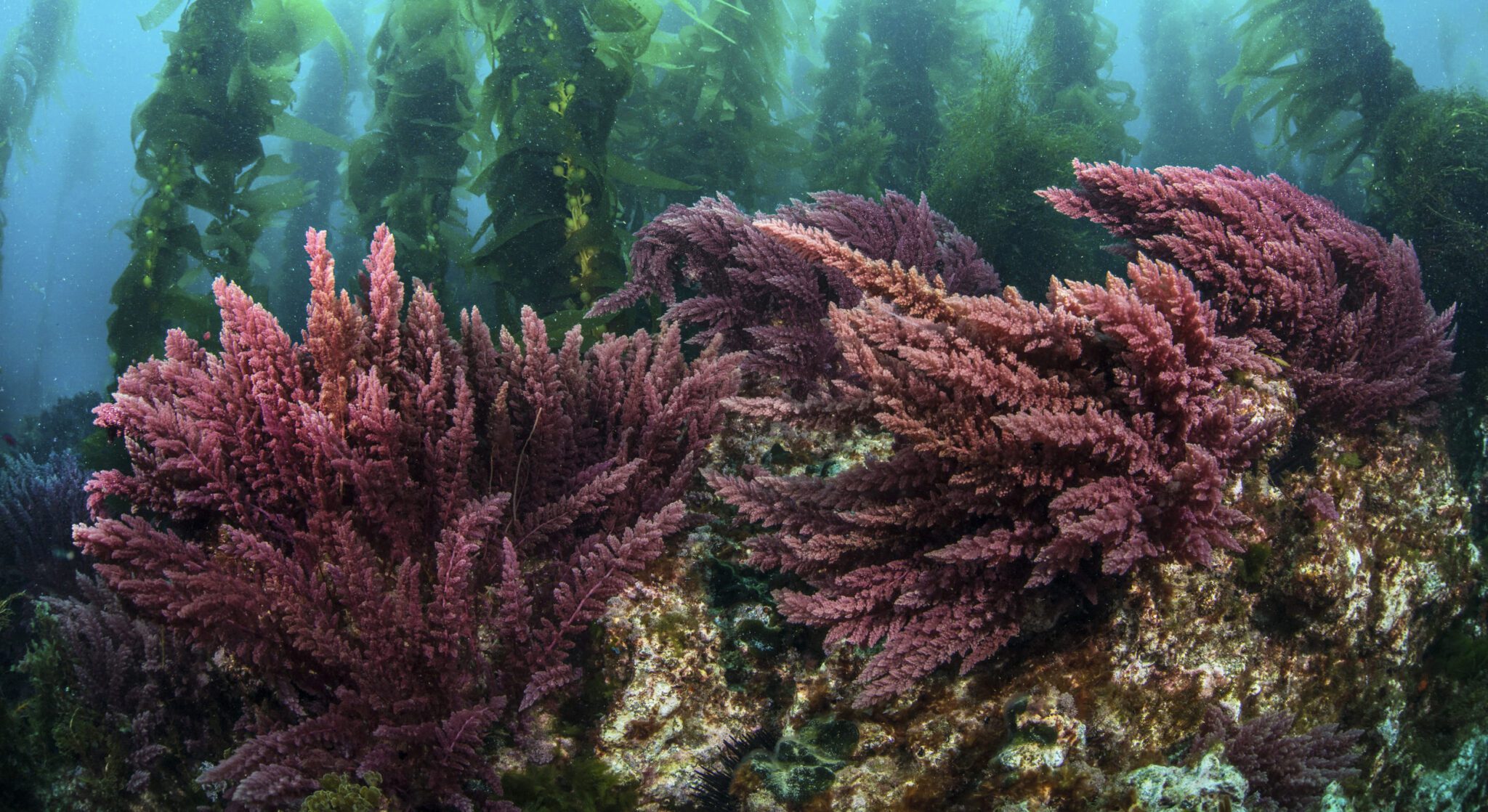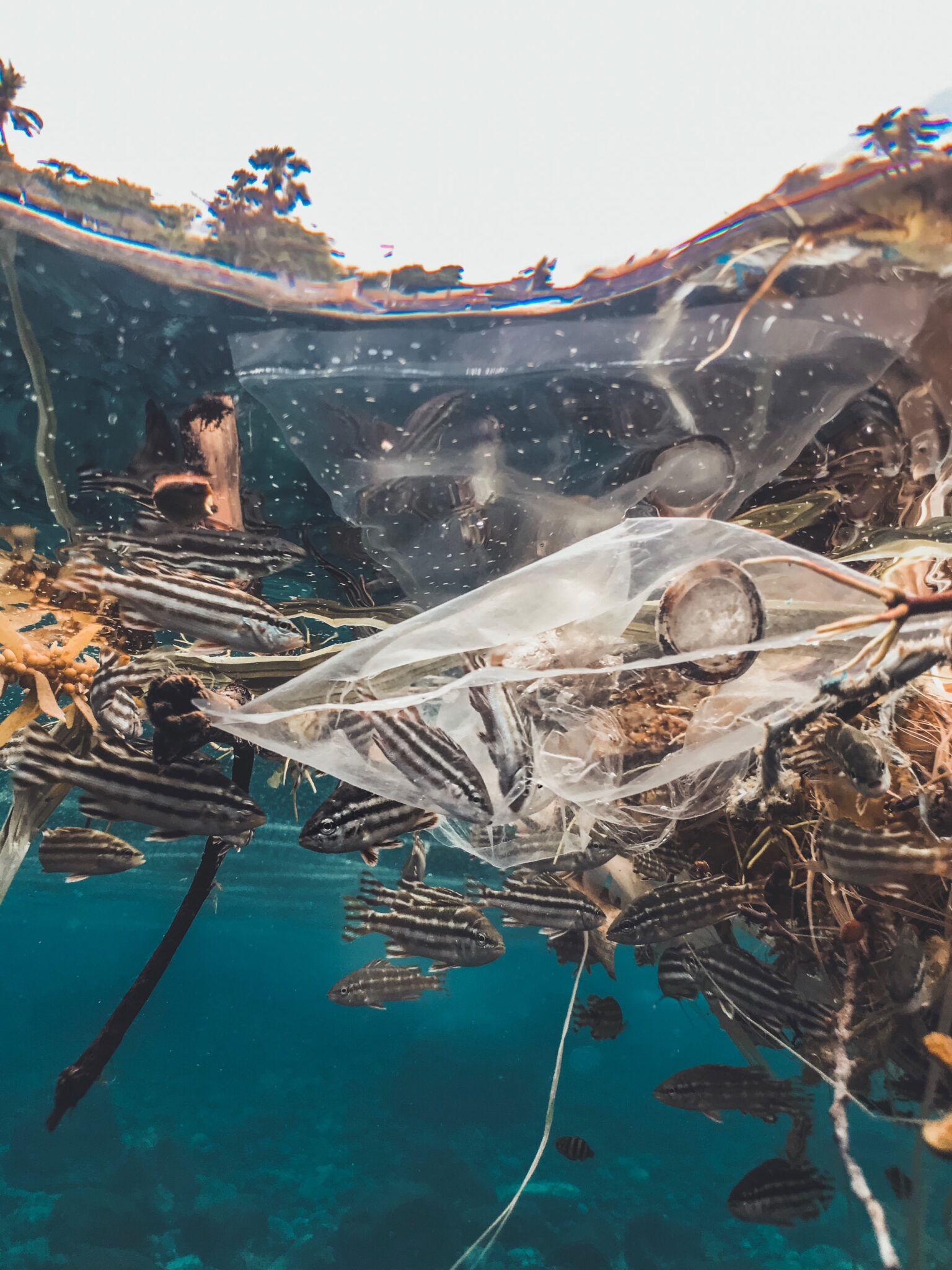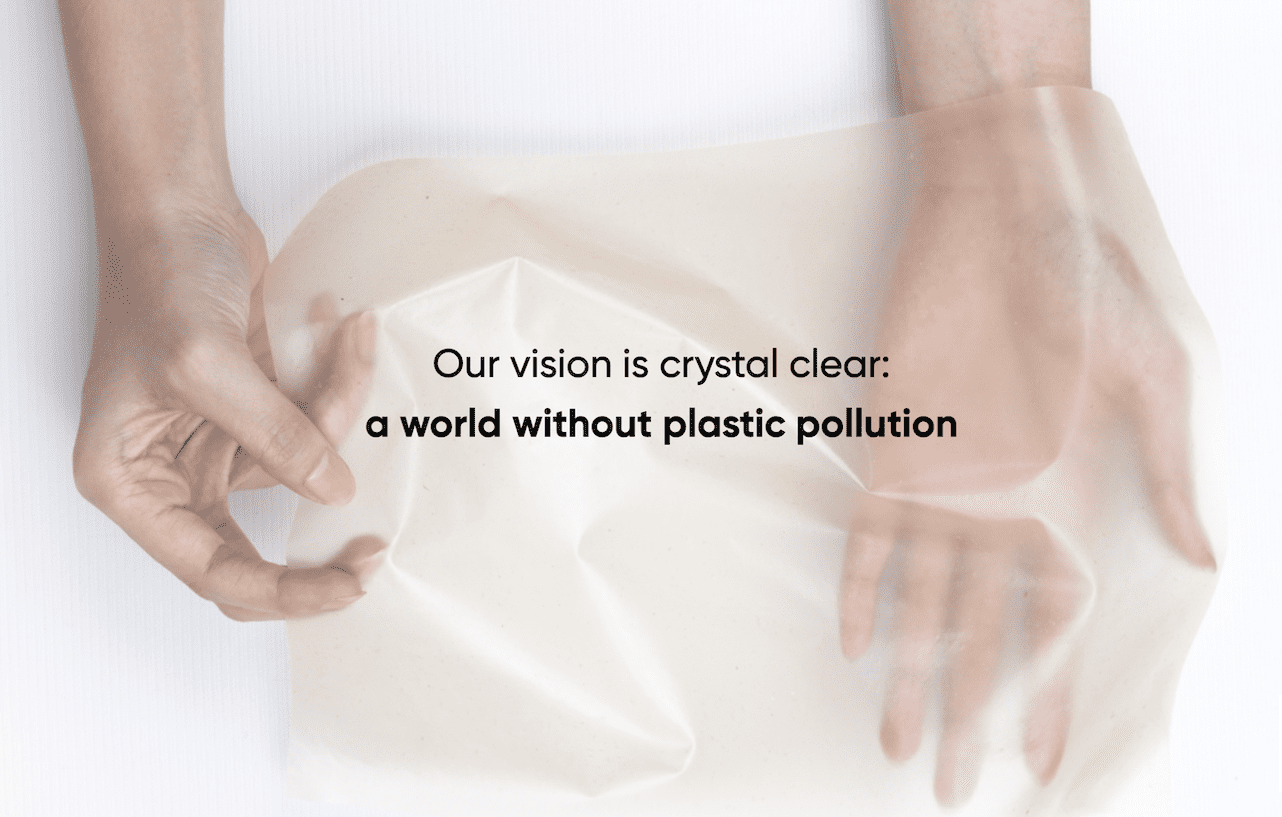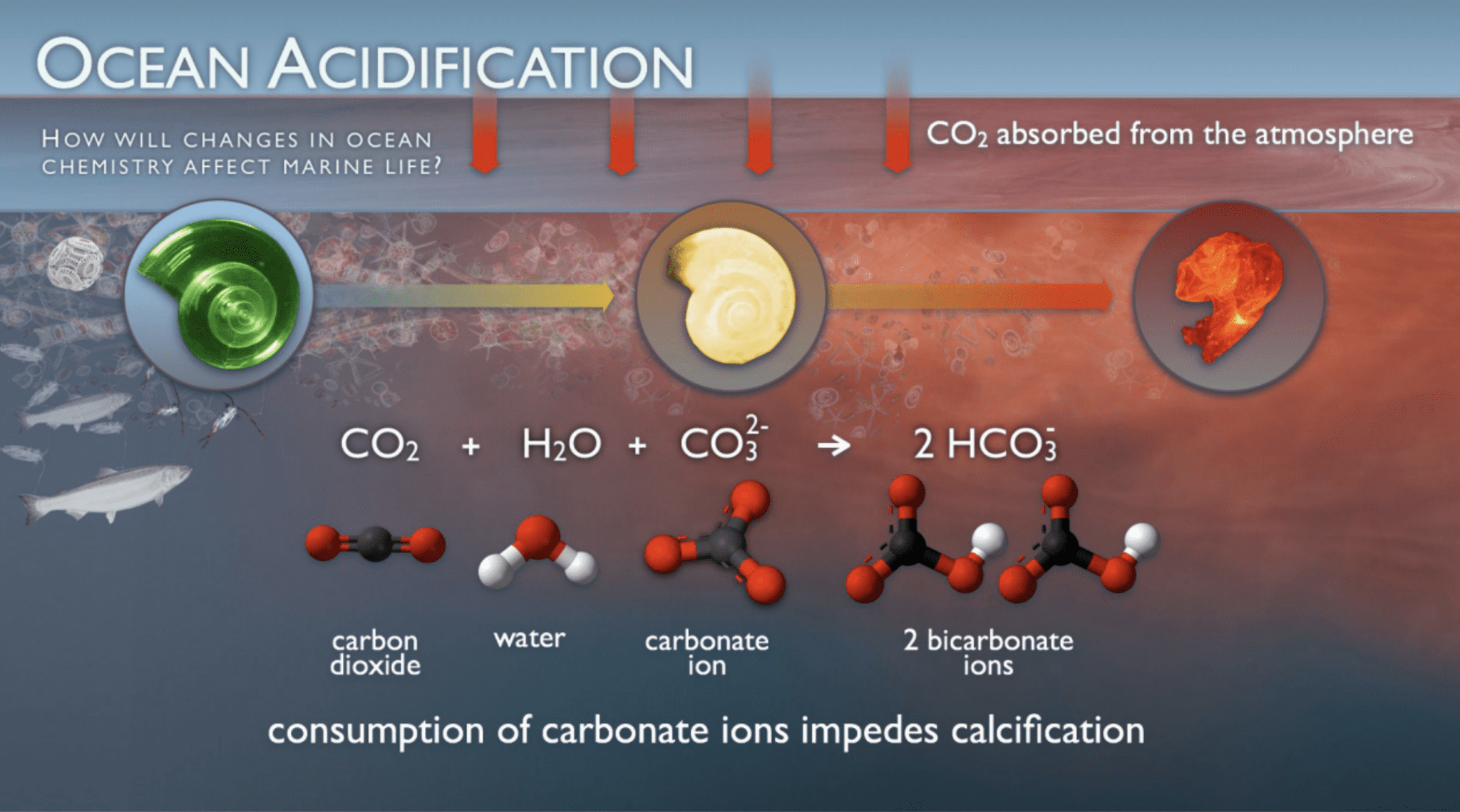
The hype surrounding the seaweed farming industry has exploded over the past decade, leading some to frame kelp as the solution to global warming and others to denounce it as a precarious craze and a passing phase.
Before diving into the merits of both sides, let’s start with a simpler question.
Why is seaweed farming necessary?
The short answer: our oceans are rising in temperature and filling with plastic.
According to the Intergovernmental Panel on Climate Change Sixth Assessment Report, the global upper ocean has been rising in temperature since the 1970s, and human activity is extremely likely to be the cause.
Not only is ocean warming bad news for the ecosystems beneath the surface but above land as well. This phenomenon accounts for over 90% of the increasing temperature of the climate system while also contributing to land warming, ice loss, and atmospheric warming.
On top of these rising temperatures, human influence has resulted in an overwhelming amount of plastic pollution in our oceans. Plastic debris affects oceanic wildlife in three main ways: entanglement, ingestion, and interaction.

Unfortunately, the fictional plot of Happy Feet was not so fictitious when depicting penguins trapped in plastic six-pack rings. The reality of marine animals entrapped by plastic waste, consuming plastics and microplastics, or finding their environments crowded with debris exists well outside the cinema.
Luckily, we can seek help through sea kelp in three pivotal ways.
Replacing Harmful Plastics
Absorbing CO2 Through Algae
Building Marine Biodiversity
1) Replacing Harmful Plastics
Due to its strength, thermoplasticity, and biodegradability, seaweed offers a sustainable alternative to fossil-fuel-based single-use plastic. By adopting seaweed as a material for containers, cups, bags, and many other products typically constructed with plastic, we can release much less CO2 into the atmosphere.
I recently had the pleasure of discussing the potential of seaweed in bringing sustainability to consumerism with Evoware’s marketing manager, Ahmad Ikhsan Muharram.
Evoware creates fully natural seaweed-based bio-packaging like food wrappings. Based in Indonesia, this startup has replaced over 900,000 plastic bags, 80,000 plastic containers and cutlery, and 2.2 million plastic cups and straws. As a finalist of Stardust Startups Spring 2022 call for Clean Water and Climate Action proposals, Evoware’s immediate success over the past few years has not gone unrecognized.
Muharram’s favorite Evoware product is their seaweed-based packaging since it is groundbreaking across so many different dimensions. Not only is it edible, water-soluble, and compostable, but its applications range drastically, including soap wrapping, food wrapping, coffee sachets, tea bags, and more.
Evoware’s motto puts it in plain terms: “plants are better than plastic.”
Muharram expands on this:
“Plants or plant-based materials are better than plastic since they are biodegradable and compostable within 180 days. Meanwhile, plastic items take hundreds of years to decompose in nature.”

United by their shared vision, the Evoware team seeks to ignite a collaborative #RethinkPlastic movement to prevent further environmental damage from single use plastics, and to empower individuals and businesses to make the switch to eco-friendly alternatives made from sustainable materials. Source: Evoware website.
2) Absorbing C02 Through Algae
The photosynthesis reactions of seaweed contribute to a carbon sink, which is essentially a natural environment that absorbs carbon dioxide from the atmosphere.
In other words, seaweed actively reduces the amount of CO2 released by human activity, thereby mitigating the effects of climate change.
Whereas forests were previously considered our best defense against climate change, researchers are now discovering that seaweed is much more effective at absorbing atmospheric carbon naturally. Relative to trees, seaweed requires fewer resources, grows more quickly, and does not occupy competitive property on land.
Seaweed may also combat global warming by reducing the amount of methane emitted by cows. Some farmers have started feeding small amounts of Asparagopsis taxiformis, a red algal species, to beef cattle with a chance of decreasing up to 99% of bovine methane production.
Another seaweed-based packaging company, Notpla, aims to reduce the production and consumption of plastic products – hence the origin of their name: Not Plastic. This start-up is London-based and specializes in beverage wrappings.
Notpla argues,
“This sea vegetable is one of our greatest weapons against climate change – reducing ocean acidification and effectively absorbing carbon.”

Asparagopsis taxiformis as cattle feed can greatly decrease bovine methane production. Source: Greener Grazing.
3) Building Marine Biodiversity
The oceans absorb approximately 30% of CO2 in the atmosphere – so after decades of absorbing atmospheric CO2, a new problem of ocean acidification has emerged, introducing lower pH levels and higher acidity.
Ocean acidification is already complicating the lives of many ocean species. It makes it harder for oysters and corals to prevent their shells and skeletons from dissolving and obscures the ability of clownfish to detect predators.
But by sucking up greenhouse gasses from their environment, seaweed helps reduce ocean acidification and attracts biodiversity. As it draws CO2 away through photosynthesis, these sea vegetables create healthier habitats for sea creatures to thrive.
A recent study assessing the effect of seaweed cultivation on coastal environments found that a seaweed farm can attract over a dozen mobile fauna and half a dozen other seaweed species.
Discussing the benefits of seaweed farming, Muharram explains that its carbon capture ability leads to the reduction of elevated carbon dioxide in the atmosphere and ocean, thus creating healthier coral reef ecosystems while reducing the acidification of the seawater.

A shell dissolves from the rising acidity of seawater. Source: National Oceanic and Atmospheric Administration, 2020.
Impacting Livelihoods
Seaweed farming does more than simply change the game below the surface – it also creates a substantial amount of sustainable job opportunities for local communities.
The economic factors in this industry all line up to produce profitable results, as Muharram outlines: seaweed grows quickly, it is easy to culture, and it commands high market prices while having low production costs.
For these reasons, coastal households can earn higher incomes through seaweed farming operations than through many local fishing operations.
A prime example is the British Columbia company Cascadia Seaweed, which works in collaboration with First Nation communities to provide agricultural job opportunities amidst high unemployment rates in the region.
Of Course, No Industry is Without its Dangers
Since seaweed can contain high levels of iodine and metals if harvested from polluted water, it can be dangerous for consumers to rely on it too heavily for nutrients.
Beyond its potential harm to humans, the anchors that are often necessary for seaweed farm operations increase the likelihood of marine mammals getting trapped in the farm’s equipment or forcing these species to find new routes for migration.
But one of the greatest disasters the booming seaweed farming industry has created is the spread of pests and pathogens across continents.
In 2011, a species of red seaweed from the Philippines carried a bacterial disease to seaweed farms in Madagascar and Tanzania, infecting these farms and costing the Philippines an estimated $310 million in losses.
After over three years of a seemingly endless global health pandemic, it would behoove us to prevent the spread of diseases before they spiral out of control a second time over.
With these cautions in mind, it may be best to begin with a deflationary attitude toward the abundance of hype around this relatively new industry.
Harvesting kelp may not be able to weed out our climate issues on its own, but at least for now, let’s sea where this goes.
Mira is an undergraduate student at McGill University studying Political Science, Philosophy, and English Literature. She currently lives in Montréal, where she works with a variety of organizations that explore how gender, human rights, and the environment fit into the contemporary political landscape. Get in touch with her at mira[at]starduststartupfactory.org.


